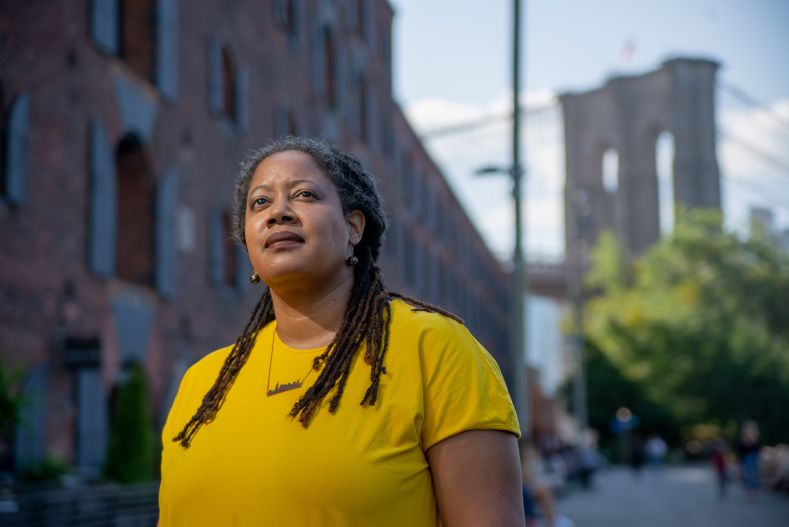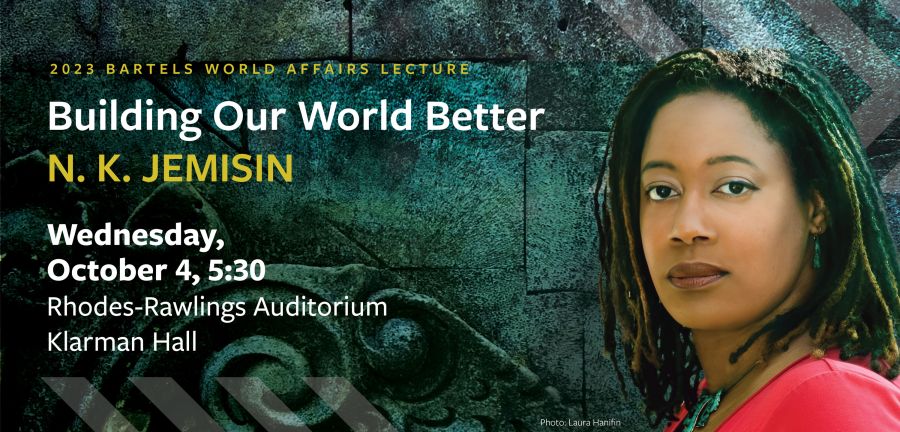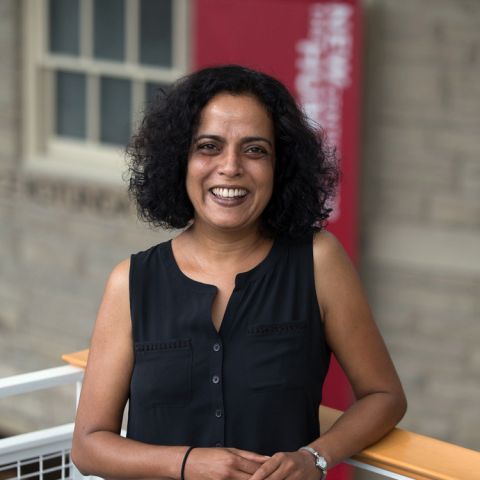Bartels Explainer

How are N. K. Jemisin’s novels acts of political resistance?
Anindita Banerjee explains how dispossessed peoples’ stories can inspire a more equitable future for us all.
This year’s Bartels lecturer, bestselling novelist N. K. Jemisin, is the first author in the science fiction and fantasy genre’s history to win three consecutive Best Novel Hugo Awards. Her fiction and critical writing highlight extraordinary and ordinary people's potential to resist oppression and reorder the world—even when entire societies have been structured to limit and exclude them.
"As Jemisin keeps emphasizing, we have the freedom to imagine otherwise."
On this page: Anindita Banerjee explains how Jemisin builds a better future by reclaiming the stories and imaginative worlds of peoples whose history has been erased. Banerjee is an associate professor of comparative literature in the College of Arts and Sciences and part of the faculty leadership for Einaudi’s inequalities, identities, and justice research priority and the new Global Grand Challenge: The Future.
Coming October 4: Get your free watch party ticket today!
A Conversation with Anindita Banerjee
What’s unique about Jemisin’s approach to world-building and activism as a creative practice?
For a while now, we have been at this juncture where the future seems less and less imaginable. Jemisin, to me, exemplifies the ability—which seems so rare now—of thinking about the future at all.
Jemisin is the kind of writer who asks us to think differently about how to build the future by looking at both the real-world stories and imaginative storytelling worlds of people who have been historically left out of these conversations. Building the future in the imagination was never a task that only a very small part of humanity undertook.
In her novels and critical writing, Jemisin has been calling for bringing those stories into a common dream of a future that will be equitable and livable.
Why is it important to dream big when we imagine the future?
When we do the work of imagining, all too often we curb our own imagination. It’s a way of curbing our desires for a better future by saying, “Well, yes, this is great, but it’s not practicable.” Imaginings that are bold—sprung from what we want, from our desire for a better world—often get shrugged off as empty utopian naivety.
Apocalyptic sci-fi and fantasy reveal some of the present’s greatest vulnerabilities. Can stories in this genre be a constructive way to think about the future?
People who have actually lived the apocalypse again and again and again can teach us a great deal about how to even make it possible to talk about, think about, and imagine the future together, despite the objective conditions of climate crisis, biodiversity calamity, inequality, wars, and political violence—all of which are connected.
This act of reclaiming the future is best done by looking at stories from around the world and from communities who have been dispossessed, disenfranchised, and erased from history. Those stories are extremely important to put back in the mix, in order to envision a collective future that’s possible for everyone.
What would you like the campus community to know about Cornell’s new Global Grand Challenge: The Future?
The Global Grand Challenge tries to bring down some of the walls that already exist before we even start to imagine what a good future might be. It seeks to make some cracks in those self-limiting walls that we have already built, fearing that this vision may be too bold, too full of wants that are not possible in reality. It’s a call to say: Okay, what if those walls were not there?
As Jemisin keeps emphasizing, we have the freedom to imagine otherwise, to imagine the world in ways that haven’t already been encoded or thought or built.
Don't miss the Bartels World Affairs Lecture with N. K. Jemisin on October 4: Reserve your free watch party ticket today!


